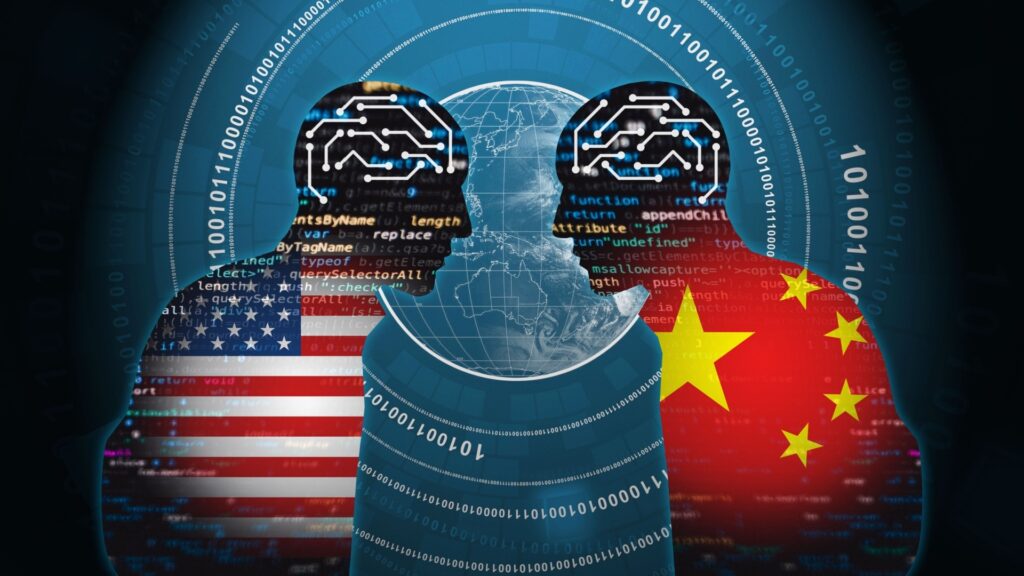THE LATEST
China’s Cyber Offensive: Unpacking the Recent Mobile Network Breach

In recent weeks, I’ve been following a significant escalation in cyber espionage that has caught the attention of many across the globe. Chinese state-sponsored hackers, operating under the name Salt Typhoon, have successfully infiltrated major U.S. telecommunications networks. (Politico) This breach has exposed sensitive data and compromised the privacy of countless Americans, raising serious concerns within the cybersecurity community.
The scope of this breach is nothing short of alarming. According to reports, at least eight major U.S. telecom firms have fallen victim to these attacks. The hackers gained access to a wealth of sensitive data, including call records and location information. (PBS) This intrusion not only exposes personal privacy but also threatens national security on a broader scale, given the critical role telecom networks play in our daily lives.
What makes this breach even more concerning is its specific focus on individuals involved in government and political activities. This targeted surveillance indicates a highly strategic and sophisticated campaign, suggesting the attackers had very particular objectives in mind. (CISA) The data they acquired could be used to track and manipulate political figures, potentially influencing decisions or gaining leverage in international relations. The implications for national security cannot be overstated.
But this is not just an issue for the U.S. This cyber espionage campaign has a global reach, affecting telecommunications infrastructure in dozens of countries. (AP NEWS) The scale of this attack underscores the interconnected nature of modern telecom networks and the risks posed by state-backed cyber actors. It is a stark reminder that cybersecurity is a global concern, and breaches of this magnitude can have far-reaching consequences beyond national borders.
As a cybersecurity professional, I can’t help but reflect on the lessons we should be drawing from this breach. It highlights the persistent vulnerabilities within critical infrastructure and the increasingly sophisticated tactics employed by state-sponsored actors. While many of us have long known that state-backed hackers are capable of executing advanced cyberattacks, the scale and precision of this operation serve as a wake-up call.
The breach also underscores the need for continuous innovation in cybersecurity. We are facing adversaries who are not only well-funded but also highly organized, using cutting-edge technology to exploit weaknesses in our systems. These attacks are no longer isolated incidents but part of a larger trend where cyber warfare is becoming an everyday reality.
So, what should we be doing in response? There are a few key actions that could significantly enhance our cybersecurity posture.
- Enhanced Network Security: Telecom providers must step up their efforts to implement robust security measures. This includes not only advanced encryption technologies but also continuous monitoring of their networks to detect and mitigate unauthorized access.
- Inter-Agency Collaboration: We need stronger partnerships between government agencies and private sector entities. Sharing intelligence and coordinating responses to cyber threats will allow for quicker detection and more effective mitigation of attacks.
- Public Awareness: Consumers must also be part of the solution. It’s crucial to educate the public on the risks of using unsecured communication channels and encourage the use of more secure options for transmitting sensitive information.
The recent mobile network breach serves as a powerful reminder of the evolving threat landscape. As cybersecurity professionals, we must remain vigilant and proactive in defending against such sophisticated adversaries. The breaches we’ve seen are only the beginning, and securing our digital infrastructure is now more critical than ever. The steps we take today will determine how well we can protect ourselves from the growing cyber threats of tomorrow.
What measures do you believe are most effective in countering state-sponsored cyber threats? Share your insights and let’s discuss strategies to bolster our defenses.
about the AUTHOR
Shakira Hicks
Cybersecurity Expert, CISSP & CMMC Certified
Shakira Hicks is a seasoned professional holding the position of Chief Operating Officer at IronVision, where she leverages her expertise in information security to drive operational excellence. With a career spanning over 19 years in the IT and cybersecurity domain, she has established herself as a distinguished senior information systems security engineer.
Shakira is an accomplished expert in the National Institute of Standards and Technology (NIST) Risk Management Framework (RMF), making her an instrumental force in the secure management of critical information. Her proficiency extends to assisting various government information systems in achieving the coveted Authority to Operate (ATO), whether in cloud, hybrid, traditional on-premises configurations, or specialized embedded mission systems.
Education-wise, Shakira Hicks holds a Master of Science in Cyber and Information Security from Capitol Technology University, underscoring her commitment to staying at the forefront of the ever-evolving cybersecurity landscape. Complementing her advanced degree, she also possesses a Bachelor of Science in Information Assurance.
In addition to her academic accomplishments, Shakira has diligently pursued and acquired several industry-recognized certifications, including Certified Information Systems Security Professional (CISSP), GIAC Certified Enterprise Defender (GCED), GIAC Certified Incident Handler (GCIH), and GIAC Systems and Network Auditor (GSNA). These certifications attest to her comprehensive skill set and dedication to maintaining the highest standards of professional competence within the information security realm.